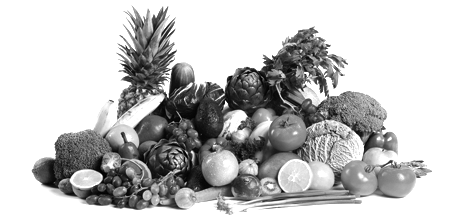The verdict: eat early.
A new study suggests eating before 7pm, especially if you have high blood pressure. It’s certainly best to avoid having dinner within two hours of your bedtime as your blood pressure won’t drop to a healthy level overnight, increasing the risk of a heart attack.
Yearly Archives: 2017
HOW TO BEAT THE SNACK ATTACK #1.
Here’s how to kill off unhealthy cravings whenever they hit…
Problem – missed breakfast.
When you leave it too long before eating in the morning, your body and brain will be desperate for fuel and you’re likely to grab something unhealthy.
Solution – have a milky drink.
Hold off on the pastry and drink a glass of milk or a skinny latte (around 100 calories) instead. The milk content will take the edge off your hunger, so you can then make a healthier choice based on your head, not just your stomach.
WHAT TO EAT WHEN.
9:00am – Coffee
Why do you crave a kick-start cup of coffee in the morning? It’s because the caffeine releases adrenaline – the hormone that makes you feel more alert – into your bloodstream. It also boosts blood circulation to your brain, helping improve concentration. Just make sure you eat breakfast first, as drinking it on an empty stomach may overload your central nervous system, making you jittery.
11:00am – Celery
As stress levels and blood pressures rise at work, munch on celery. It contains potassium, known to help lower sodium levels (a sign of high blood pressure and stress). Plus, at six calories per stick, they won’t ruin your appetite.
1:00pm – Mackerel
Need a brain boost in the afternoon? Tuck into a mackerel salad at lunch, packed full of cognitive-enhancing omega-3. Plus, this is a great time to chomp down on some nutritious leaves – your metabolic rate is at its highest, so it’s easier to break down raw foods.
2:00pm – Blueberries
These berries provide a super-healthy sweet hit, and with their low-glycaemic index they’re absorbed slowly, so don’t lead to a sudden sugar level spike. And there’s more good news – research suggests that regularly eating blueberries can lead to a rewriting of the part of your brain that affects short- and long-term memory, as well as boosting attention span.
5:00pm – Beetroot
Off to the gym after work? Studies have revealed that beetroot juice helps your muscles work more efficiently and lowers oxygen uptake. It’s also a vasodilator, which means it opens up blood vessels, allowing oxygenated blood to get to your hard-working muscles.
10:00pm – Cherries
If you’re feeling peckish before bed, snack on a handful of cherries. These contain melatonin – a hormone that induces sleep – so you should have a good night’s rest.
WHAT’S BETTER: STARVE OR FEED THE FLU?
WHAT TO EAT TO BEAT THAT COLD!
Diet is the first port of call in the fight to stay healthy, and prevention is better than cure. Here are my top tips to keeping your immune system strong throughout the cold season:
- Fill up on a rainbow of fresh fruit and veggies so you’re getting all the vitamins you need. Immune-boosting vitamin C is the star of the show here. It’s especially high in kiwis, peppers, kale and leafy greens, citrus fruits, broccoli and berries.
- Garlic has antibacterial properties and has the antioxidant allicin, which helps counteract the effects of free radicals in the body.
- Chilli also has antioxidant properties as well as acting like a decongestant.
- Ginger is a good warmer as well as soothing the stomach.
- Stay hydrated and eat foods rich in soluble fibre such as avocado, tomatoes and other fresh fruits and veggies, plus insoluble fibre like brown rice and wholegrains.
- Zinc is another immune system booster. Fresh beef and baked beans are good sources.
ARE YOU GETTING ENOUGH VITAMIN D?
With doctors fearing the return of rickets due to low levels of the sunshine vitamin, how can we sun-starved Brits get enough this winter?
How to get more sunshine
Although it’s important to protect yourself in the sun, you need to build up your vitamin D levels with bursts of unprotected sun between April and October to build reserves for the winter. Try getting 10-15 mins of sun exposure to your arms, hands or back, two to three times a week. Longer exposure doesn’t provide additional benefits, so make sure you apply a high SPF afterwards.
Take a supplement
The Department of Health advises those who have low or no exposure to sun, those with darker skin, over 65s and all children aged 6 months to five years to take a vitamin D supplement. In addition, it is recommended that, in winter months, everyone should consider taking a 10 microgram supplement if their diet is unlikely to provide it.
Eat well
Although you might only get a small portion of vitamin D from your diet, it’s still important to eat a mix of foods rich in the stuff, especially during the winter. Top up on oily fish, egg yolk, fortified cereals, red meat and dairy products.





